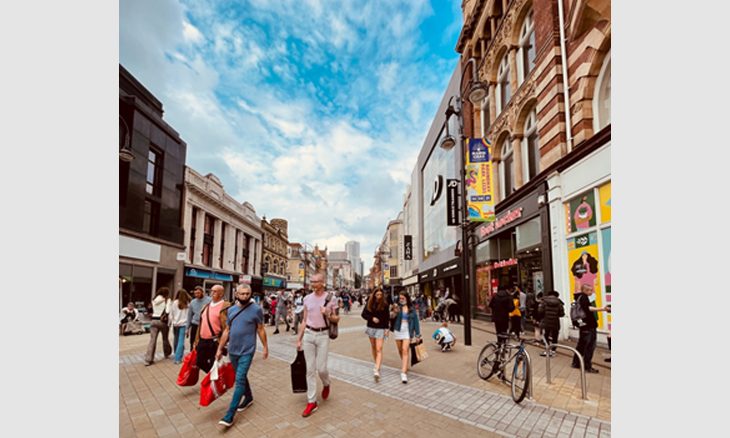Independent high street business debt has more than quadrupled over the last year, a new Grimsey Review report has revealed, warning that Britain is facing a fresh wave of closures this autumn.
- Debt for high street independents has more than quadrupled
- Working conditions have become more insecure – 63% of people working in beauty salons are now self-employed
- Growth of trader associations and new adaptive spaces is giving indies a bigger voice and encouraging a new generation of high street entrepreneurs
In the latest review from veteran retailer Bill Grimsey, his team examine Britain’s vibrant independent shops, services and hospitality businesses, which have done so much to turn our high streets and town centres into attractive community places.
With 17,500 chain stores closing in 2020, Grimsey warns that a tsunami of smaller independents could soon follow. They are believed to owe £1.7billion and, as business support measures are withdrawn, thousands are vulnerable.
“Our high street independents have experienced a newfound appreciation during lockdown,” he said. “But they’ve also been forced to take on government-backed loans, which they would not have normally been able to get because their balance sheets wouldn’t allow it. Now they are struggling to manage a mountain of debt and need help.”
The review is calling for a Government ‘forgiveness scheme’ to write off government-backed loans for viable small businesses.
“The French Government is already working on a policy to save small businesses from being crushed by debt and we need to do the same to save thousands,” added Grimsey.
In a wide ranging examination of how high street independents have survived the pandemic and their impact on communities, the review also looks at a new generation of retailers that are trying out bricks and mortar retail after first building online brands.
To support this sector more, it urges Government to take action on business rates in their autumn review, and calls for more initiatives to entice online entrepreneurs onto the high street.
The review also acknowledges the huge contribution made by hair and beauty, the fastest growing sector on the high street. However, it warns that the sector has become more precarious during the pandemic, with thousands of workers shifting to self-employed status.
It is also suffering from a lack of regulation, and deteriorating standards are encouraging a race to the bottom.
The UK is one of the only countries in Europe and North America where hairdressers and barbers aren’t regulated. Furthermore, after a week’s course, people can start injecting Botulin or reshaping customers’ faces with a dermal filler.
In conclusion, Grimsey said that Britain would not ‘build back better’ unless policymakers looked beyond infrastructure investment to equally prioritise small business and strengthening the social fabric of high streets.
“Britain is at a crossroads and the pandemic has brought about sweeping changes that will make a decisive break with a traditional high street model,” he warned. “But we can’t build our way out of trouble. To unlock the potential of our high streets, we need to focus on people, partnerships and communities as well.”
“That means protecting small businesses. It means supporting a new breed of digitally savvy entrepreneurs and making high streets a testbed for new thinking. And it means promoting high standards and regulating key sectors like hair and beauty. Britain needs a social recovery to lock in an economic one and our high streets should lead by example.”
Hair & Barber Council Registrar/CEO, Keith Conniford, said: “This highly anticipated review focuses on the increasingly worrying position of the retail, hair and beauty and hospitality sectors. It highlights the plight of our sector specifically, and the lack of support we have been given in spite of the many reports, letters and contacts The Hair and Barber Council made during the pandemic to MPs, Cabinet Ministers and direct to No 10.“
He continues “The report highlights the real need for our sector to be regulated to protect it moving forward and forms part of its recommendations to Government. Salons, Barber Shops and Beauty salons/spas are the powerhouse of the high street and Government must now start to seriously listen, support and help us to finally amend the current Act of Parliament from voluntary to mandatory….not until then will we ever be taken seriously as the professional industry we clearly are. The time is now…..a fascinating piece of work.”

